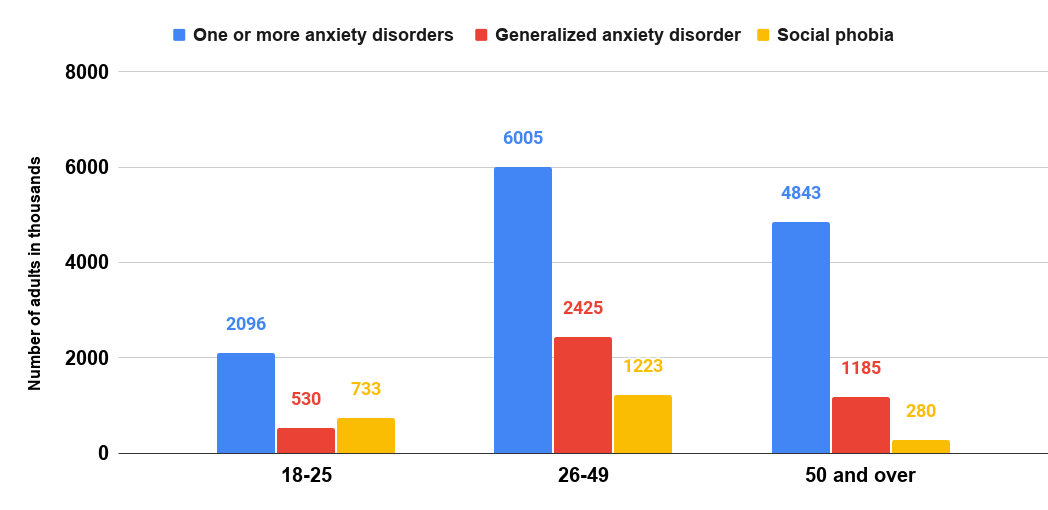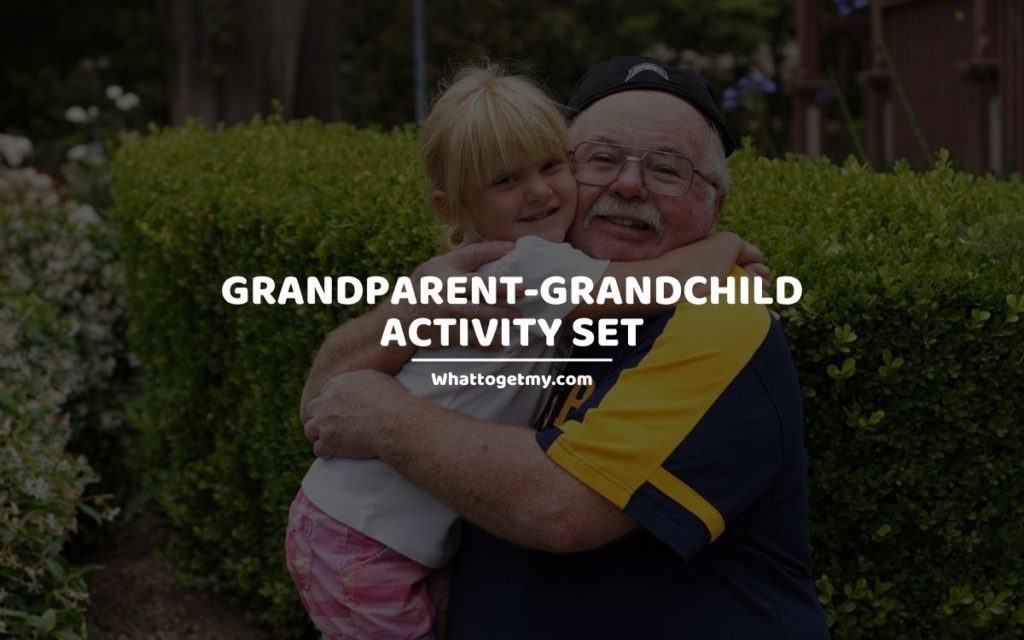What to Say to Someone With Anxiety
WhatToGetMy Instructional Article
- Anxiety disorders can be a result of genetics, environmental stress, childhood trauma, or low self-esteem. Often times, a combination of two or more.
- Anxiety affects people of all ages but is more prevalent in people ranging from ages 26-49.
- Dealing with people who have anxiety can be quite a task especially when you want to be respectful and not step on any toes unintentionally. Continue reading this article to find out the best things to say and not say to someone with anxiety.
Anxiety disorders affect people of all ages but it is most prevalent in adults aged between the ages of 26 to 49 years. There are many factors that lead to the development of anxiety in adults and below are some of the risk factors:
1. Genetics: You are more likely to develop anxiety disorders if someone in your family has (had) an anxiety disorder, more specifically one of your parents.
2. Environmental Stress: Environmental factors such as money problems, racial discrimination, and general poverty increase the risk of a person developing anxiety disorders. College students are among the highest group of people that develop anxiety disorders due to academic pressure.
3. Childhood Trauma: People who went through some sort of childhood trauma are at high risk of developing anxiety disorders especially if the trauma is never confronted or healed.
4. Low Self Esteem: Having a low view of the self can affect how you see and relate to the world around you and this can result in anxiety disorders such as social anxiety where the person reclines back into themselves and shuts down the world for fear of being judged by others.
Number of adults with anxiety disorders in the U.S. in 2008-2012, by age group (in 1,000) Source: statista.com

Because of the increased number of people that suffer from anxiety in the United States alone, it is safe to assume that you are going to run into at least one person who suffers from anxiety and it is important that you know how to talk to someone with anxiety disorder so that you do not say anything offensive or insensitive, even when you do not intend to do so. Below are some of the things you can and cannot say to someone who has anxiety.
WHAT TO SAY TO SOMEONE WITH ANXIETY
Ask them if they are okay
This is one of the most considerate things to say to someone with anxiety because it is a question in the positive (as opposed to asking “what’s wrong?”) which gives them room to think of whether or not they are okay as opposed to thinking of what is wrong with them.
Let them know you are there for them when/if they need to talk
Another thing to say to a friend with anxiety is to let them know that you are available for them when they need someone to talk to. This is not intrusive and does not pressure them into sharing information and feelings they are not ready to share or even understand quite yet themselves. When you say to your friend with anxiety “I am here for you” you are leaving an open door for conversation whenever they are ready to share. You may also decide to get them a small gift that may help them in their day to day life. Here is a link to gifts for someone with anxiety.
Validate their feelings
Another important thing to say to someone who has anxiety is to affirm them that their feelings and emotions are valid. Oftentimes people with anxiety are not taken seriously when they express their discomfort over things that neurotypical people deem “normal”. Let them know that their triggers are valid as are their feelings and by doing so you will be creating a conducive environment for them to be comfortable and talk to you whenever they feel triggered or are about to have anxiety attacks.
Do not rush them
Let them know that it is okay to take things slow especially when they are feeling overwhelmed. In a fast-paced world, people with anxiety may feel overwhelmed constantly and it is up to you to let them know that they are doing great and it is okay to take the day – or two – off, to get themselves together so they can be more productive later and not burn out. This is especially a technique you should use if you are an employer.
Ask them how you can help
In the spirit of autonomy, do not offer to help a person with anxiety because this may imply that they are incapable of taking care of themselves. Instead, asking them how, when, or if you can help will convey to them that you know they are capable of taking care of themselves but in the event that they need help, you are available to lend a hand and that’s okay.
Affirm your love for them
Perhaps the most common trait amongst people with anxiety is their constant fear that they are a burden to the people closest to them which in many instances develops to them thinking that their friends and family arent as fond of them. It will do them much good if you, every once in a while, reminded them just how much you care for them and how mch they mean to you, and how much you love them. Just so they never forget or let their anxiety lie to them for long.
HOW TO CALM SOMEONE WITH ANXIETY DOWN
Offer them a hot beverage
When someone who has anxiety is experiencing an anxiety attack, you can choose to comfort someone with anxiety by giving them a hot beverage of their liking. This could be hot cocoa, tea, or just warm water with lemon. This will help them calm down and also breathe in and out slowly which can then calm them down.
Give them relaxing body rubs
Another way to treat people with anxiety when they are panicing or are triggered is to offer them relaxing body rubs – it can either be around the shoulders, on the temples, or feet. Of course do this with their permission and consent. It will help them relax and take their mind off of the trigger.
Use Aromatherapy
Aromatherapy is a less invasive way of helping to calm down someone with anxiety. Just light them afew scented candles, or turn on an essential oil diffuser intheir room and let them sit and be calmed by the delicious smells.
WHAT TO SAY TO SOMEONE HAVING AN ANXIETY ATTACK
Help them stay calm
You can help them gain and stay calm by helping them with their words of affirmation if they have some, or by reciting to them calming poetry that they like and relate to.
Suggest Breathing exercises
You may also suggest that they try breathing exercises when dealing with someone who has anxiety. These will help them regulate their breathing and heart rate as well which in turn will help them calm down and focus.
HOW TO HELP A PERSON WITH ANXIETY
Write them affirmations
How do you help a friend with anxiety? By affirming them. Let them know they are important, worthy, and valid. Tell them you love them in more ways than one. Show them every day just how much you love and appreciate them. Affirmations go a long way with people who have anxiety.
Listen to them when they talk
Listening is also a big part in helping a person with anxiety. Sometimes you don’t even have to say anything in return or even offer advice (unless asked to) just you sitting there and listening to them vent is enough for them.
Help them see a therapist if they aren’t already seeing one
One of the best ways to help someone with anxiety is to help them find a good therapist who can help them navigate and live with their anxiety and teach them how to deal with their triggers. This is important because even though you can try to be there for them as a friend, you may not always know how to help them effectively.
Related article: How to comfort someone with anxiety
WHAT NOT TO SAY TO SOMEONE WITH ANXIETY
Don’t tell them to calm down
one of the things not to say to someone with anxiety is to tell them to calm down. This will only aggravate them more and even make them angry. Instead, find ways to help calm them down without having to say the words “calm down.”
Don’t invalidate their feelings
Telling someone with anxiety not to worry is quite invalidating to their feelings of anxiety because yes, they already know they shouldnt be worrying and you pointing out the obvious really doesnt help anyone at all. You can find ways to validate their feelings instead and help them think through their anxiety.
Don’t tell them you know what it feels like (even if you do)
A mistake that most people make when a person who has anxiety opens up to them is that they turn the subject around and make it about themselves in an attempt to appear more relatable but really what this does is it invalidates the other person’s feelings because it conveys the message “we all go through it, I went through it and look at me, I am completely fine!” Unless you can turn it around and make it positive for them, refrain from doing this.
Don’t tell them what to do
You can offer suggestions but don’t tell the person what to do especially if you have no idea if they have already tried the thing you are suggesting or not. Remember that it is highly likely that this person has had anxiety for a while and they may have tried a lot of the ways you have read about on search engines.
QUESTIONS TO ASK SOMEONE WITH ANXIETY
How are you feeling?
Ask them how they are feeling and let it be up to them to tell you what they are experiencing that day. It is respectful and gives them autonomy to answer how they are feeling as opposed to what you may think they are feeling.
Do you need me to do anything for you right now?
This lets them know that you are there for them if they need you. However, it also sets a bundary for you for when you are able to help them so if they needed anything from you at this moment, you would be able to provide it to them but not at any other moment.
Should I call/come visit you?
It is always important to ask for permission before calling or visiting someone who has anxiety. It gives them time to mentally prepare for guests if visiting and to talk for extended periods of time if calling. Always ask whether to call or visit.
Frequently Asked Questions
- How do you nicely tell someone not to worry?
It is very rare that one will find a balance between telling a person with anxiety not to worry and do it in a way that doesn’t come off as dismissive. However, you may try to convey your sentiments by using affirmative and positive language and also offering possible solutions or alternatives. Click here to find other alternatives on things you can say to someone with anxiety.
CONCLUSION
Remember to also take care of yourself while taking care of your loved one who has anxiety. It is important to set boundaries so you do not spread yourself thin trying to be there for them all the time. You can best take care of others when you take care of yourself.
01 HOUR 25 MINUTES
ESTIMATED TIME DESIGNING AND UPLOADING THIS ARTICLE
10 HOURS 16 MINUTES
ESTIMATED TIME RESEARCHING AND WRITING THIS ARTICLE
You Might Also Like


